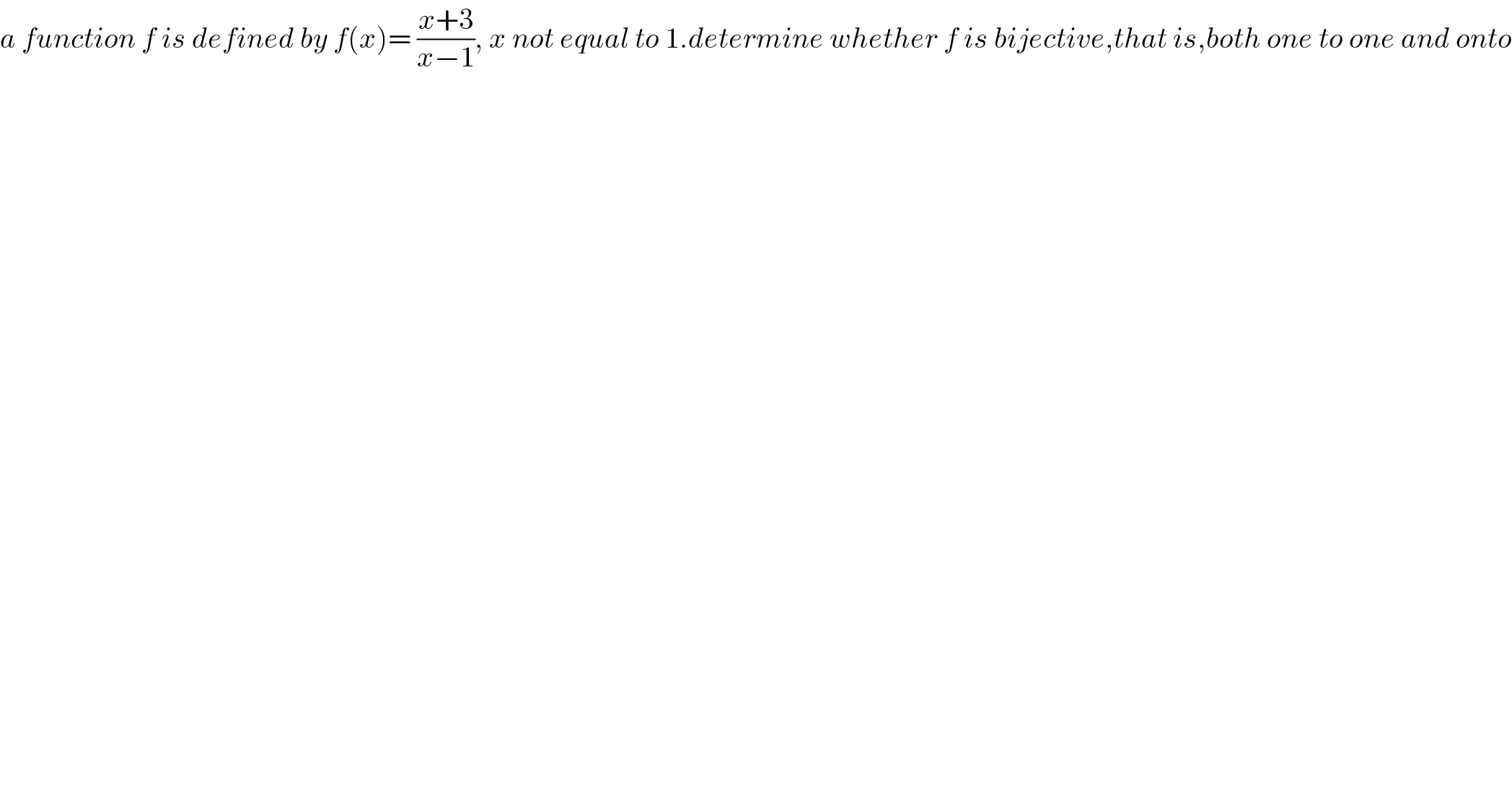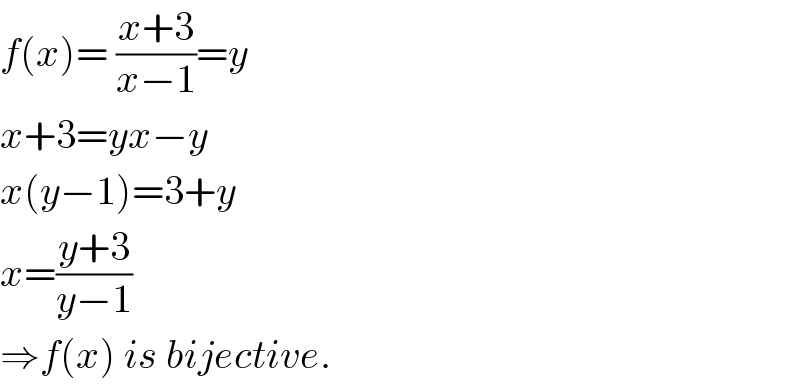
Previous in Relation and Functions Next in Relation and Functions
Question Number 10741 by okhema last updated on 24/Feb/17

$${a}\:{function}\:{f}\:{is}\:{defined}\:{by}\:{f}\left({x}\right)=\:\frac{{x}+\mathrm{3}}{{x}−\mathrm{1}},\:{x}\:{not}\:{equal}\:{to}\:\mathrm{1}.{determine}\:{whether}\:{f}\:{is}\:{bijective},{that}\:{is},{both}\:{one}\:{to}\:{one}\:{and}\:{onto} \\ $$$$ \\ $$
Answered by mrW1 last updated on 24/Feb/17

$${f}\left({x}\right)=\:\frac{{x}+\mathrm{3}}{{x}−\mathrm{1}}={y} \\ $$$${x}+\mathrm{3}={yx}−{y} \\ $$$${x}\left({y}−\mathrm{1}\right)=\mathrm{3}+{y} \\ $$$${x}=\frac{{y}+\mathrm{3}}{{y}−\mathrm{1}} \\ $$$$\Rightarrow{f}\left({x}\right)\:{is}\:{bijective}. \\ $$
Commented by okhema last updated on 24/Feb/17

$${yes}\:{thats}\:{the}\:{working}\:{out}\:{but}\:{from}\:{your}\:{answer} \\ $$$${how}\:{could}\:{you}\:{tell}\:{thats}\:{its}\:{bijective} \\ $$
Commented by mrW1 last updated on 24/Feb/17

$${for}\:{each}\:{x}\:{we}\:{get}\:{an}\:{unique}\:{y}\:. \\ $$$${it}\:{shows}\:{for}\:{each}\:{y}\:{we}\:{get}\:{also}\:{an} \\ $$$${unique}\:{x}. \\ $$$${thus}\:{the}\:{function}\:{is}\:{bijective}. \\ $$
